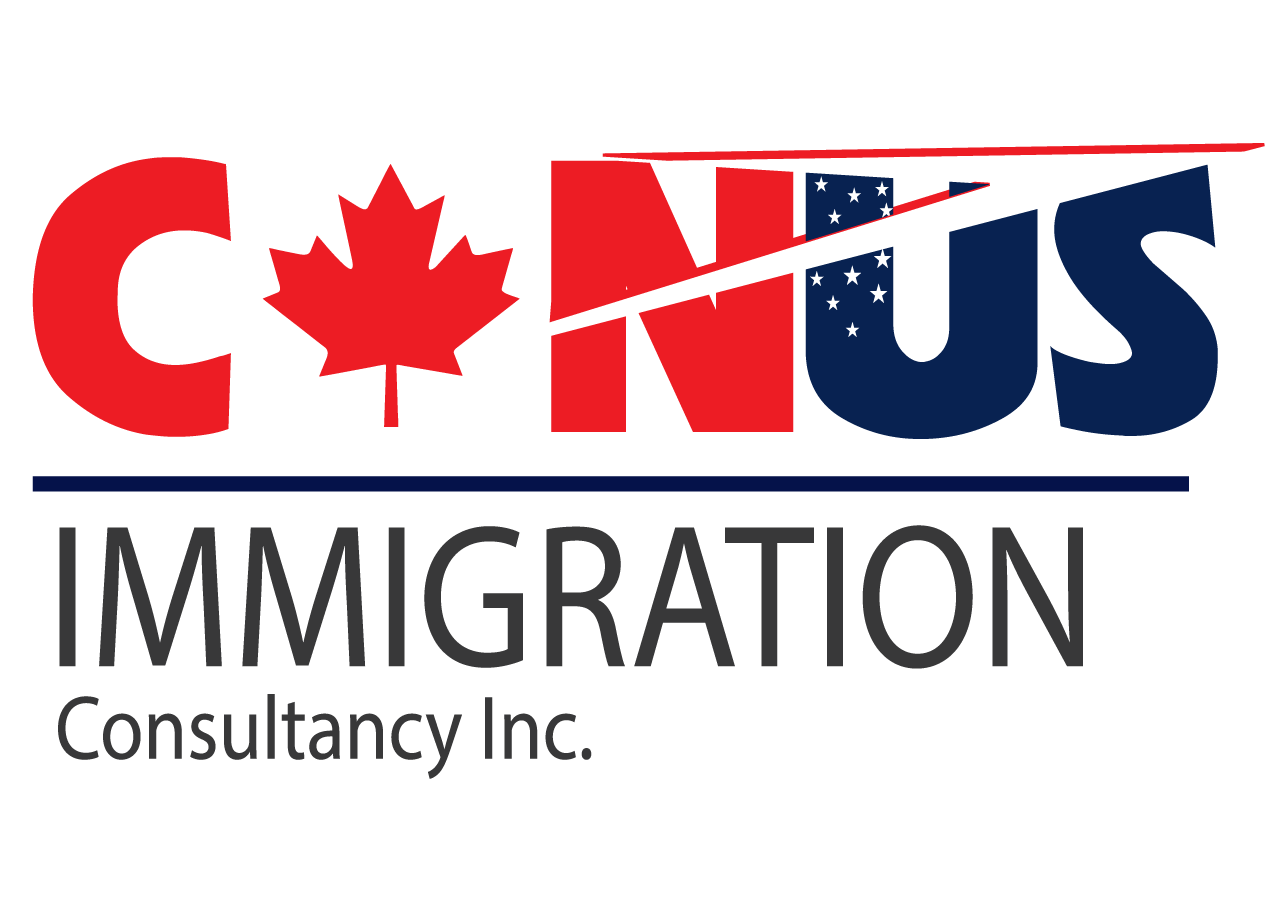- Monday - Friday10AM - 7PM
- Offices: 201-7025 Tomken Rd, Mississauga, ON L5S 1R6, CANADA
Nowadays, many people dream of working and settling in Canada. Work permit applications are soaring every year. The demand for foreign workers is increasing and employers in Canada are hiring with LMIA. An LMIA, or Labour Market Impact Assessment, is a document that Canadian employers need to hire foreign workers. It shows that there are no Canadian workers available for the job. This process has become crucial as Canada’s workforce needs to grow.
At Canus Immigration, we help you secure an LMIA based work permit quickly and efficiently. Are you looking to work in Canada? We guide you through the process step-by-step. Our experts ensure all requirements are met. No unnecessary delays. No confusing paperwork. Just clear, straightforward assistance.
What is an LMIA Based Work Permit?
An LMIA Based Work Permit is a type of Canadian work permit that requires a Labour Market Impact Assessment (LMIA). This document, issued by Employment and Social Development Canada (ESDC), allows employers to hire foreign workers when no suitable Canadian workers are available. The LMIA demonstrates that the employment of a foreign worker will have a positive or neutral impact on the Canadian labor market. Once an LMIA is approved, the foreign worker can apply for a work permit. This process ensures that Canadian job opportunities are protected while addressing labor shortages in specific industries.
Types of LMIA Based Work Permits
There are several types of LMIA based work permits, each catering to different needs. High-Wage LMIA permits are for positions paying above the median wage, while Low-Wage LMIA permits are for jobs paying below the median. There are also specific permits for agricultural workers and caregivers. The LMIA based work permit processing time varies depending on the type of job and the current demand. Generally, high-wage positions have a faster processing time compared to low-wage positions.
LMIA Based Work Permits include various categories tailored to specific needs:
- Low-Wage and High-Wage
- In-home Caregivers
- Supporting PR Application
- Global Talent Stream
- Dual Intent
- Agricultural Workers and Seasonal Agricultural Workers.

Each type specifies requirements for employers’ eligibility, job advertising, forms, supporting documents, processing fee, and timeline. Temporary foreign workers with a positive LMIA may receive from 50 to 200 additional points in the Express Entry program. It can significantly aid their immigration
High-Wage LMIA Based Work Permits
High-Wage LMIA Based Work Permits are for positions where the wage is above the provincial or territorial median wage. These permits cater to skilled workers in industries with higher pay scales. Employers must submit a transition plan, outlining how they will reduce their reliance on foreign workers over time. The LMIA based work permit processing time for high-wage positions is generally faster. It reflects the urgent need for skilled labor in these roles.
Low-Wage LMIA Based Work Permits
Low-Wage LMIA Based Work Permits are designed for jobs that pay below the provincial or territorial median wage. These permits are essential for filling positions in sectors like hospitality, retail, and agriculture, where there is a significant need for workers. Employers hiring for low-wage positions face stricter requirements, such as 10%-30% caps on the number of low-wage foreign workers they can employ. The LMIA based work permit processing time for low-wage positions may be longer due to these additional requirements.
Are You Eligible for LMIA Based Work Permit Canada?
Are you dreaming of working in Canada and securing a better future? An LMIA Based Work Permit can be your gateway. This permit is essential for foreign workers who have a job offer from a Canadian employer. It’s your path to work and settle in Canada legally. But are you eligible? Let’s find out.
Job Offer:
- Must have a valid job offer from a Canadian employer.
- The job should be full-time and not seasonal.
Employer Requirements:
- Employer must have a positive Labour Market Impact Assessment (LMIA).
- Employer should demonstrate efforts to hire Canadian citizens or permanent residents first.
Qualifications:
- Relevant skills and experience for the job.
- Appropriate education or training, if required.
Language Skills:
- Proficiency in English or French.
- Ability to communicate effectively in the workplace.
Health and Background:
- Clean medical record.
- Clear criminal record.
Meeting these criteria is crucial to securing your LMIA Based Work Permit Canada. If you don’t meet any of these criteria, you can consult with experts for the best pathways. Contact Canus Immigration for expert guidance and support.
How to Obtain an LMIA Based Work Permit in Canada
Obtaining a work permit in Canada through the Labour Market Impact Assessment (LMIA) process is a crucial step for many foreign workers seeking employment in the country. This pathway ensures that hiring international talent doesn’t negatively impact the Canadian job market. While the process can be complex and time-consuming, understanding the steps involved can help streamline your application. Let us walk you through the essential stages of securing an LMIA-based work permit in Canada.
1. Secure a Job Offer and LMIA
The first step is to find a Canadian employer willing to hire you. Once you have a job offer, your employer must apply for a Labour Market Impact Assessment from Employment and Social Development Canada (ESDC). This process involves demonstrating that hiring a foreign worker will not negatively affect the Canadian labor market. The employer submits the application, pays the required fee, and waits for ESDC to process it. If approved, the employer receives a positive LMIA.
2. Work Permit Application
After receiving a positive LMIA, you can apply for your work permit. Gather all necessary documents, including:
- Passport
- Job offer letter
- Positive LMIA
- Proof of qualifications
- Proof of funds
Submit your work permit application to Immigration, Refugees and Citizenship Canada (IRCC) along with the processing fee. Depending on your country of origin and the nature of your work, you may also need to undergo a medical examination and provide biometrics.
3. Application Processing and Decision
IRCC will review your application, which can take several weeks or months. During this time, respond promptly to any requests for additional information. Once a decision is made, you’ll be notified of the outcome. If approved, you’ll receive either your work permit (if applying from within Canada) or a port of entry (POE) letter (if applying from outside Canada).
4. Entering Canada and Activating Your Work Permit
If you’re outside Canada when approved, travel to a Canadian port of entry with your POE letter and all supporting documents. Present these to the border services officer, who will issue your work permit. If you’re already in Canada, your work permit will be sent to you by mail.
5. Beginning Work in Canada
Once you have your work permit, you can start working for the specified employer under the conditions outlined in your permit. Remember that this work permit is typically tied to a specific employer, job, and location, so adhere to these conditions carefully.
6. Maintain Compliance and Plan Ahead
Throughout your stay, ensure you comply with all conditions of your work permit. If you wish to change employers or extend your stay, you’ll need to apply for a new work permit or LMIA based work permit extension before your current one expires. It’s advisable to start this process well in advance to maintain your legal status in Canada.
Why Choose Canus Immigration?
Imagine stepping off the plane in Canada, work permit in hand, ready to start your new life. That’s the dream Canus Immigration turns into reality every day. With our expert guidance, the maze of LMIA-based work permits becomes a clear path to your future. We’ve helped countless individuals navigate the process, combining personal touch with professional expertise. Contact Canus Immigration today and let’s make your dream job a reality.
FAQs About LMIA Based Work Permit
An LMIA Based Work Permit allows Canadian employers to hire foreign workers when no Canadians are available for the job.
Employers apply for an LMIA to demonstrate the need for a foreign worker and ensure the job offer aligns with Canadian labor market requirements.
The processing time for an LMIA Based Work Permit varies, typically ranging from several weeks to a few months.
The duration of an LMIA Based Work Permit is generally tied to the length of the job offer, up to a maximum of three years.
Yes, there are specific language requirements for LMIA-based work permits in Canada. Except for certain streams like the agriculture stream, applicants for both skilled and semi-skilled positions typically need to show proficiency in either English or French.
Ensure you have the LMIA based work permit checklist, including job offer, LMIA approval, and proof of qualifications.
Yes, it can be extended. An LMIA Based Work Permit extension is needed when it’s expired with the employer needing to reapply for a new LMIA.
LMIA based work permit success rate depends on meeting requirements and providing thorough documentation.
LMIA Based Work Permit fees vary, typically covered by the employer as part of the application process.
Temporary foreign workers with a positive LMIA may gain additional points in the Express Entry program, enhancing their chances of Canadian permanent residency.
The Global Talent Stream facilitates faster processing for highly skilled workers, benefiting both employers and foreign workers.
Switching employers may require a new LMIA or an LMIA-exempt work permit, depending on circumstances.
If denied, explore the reasons with your employer and consider reapplying with improved documentation or exploring other immigration pathways.
